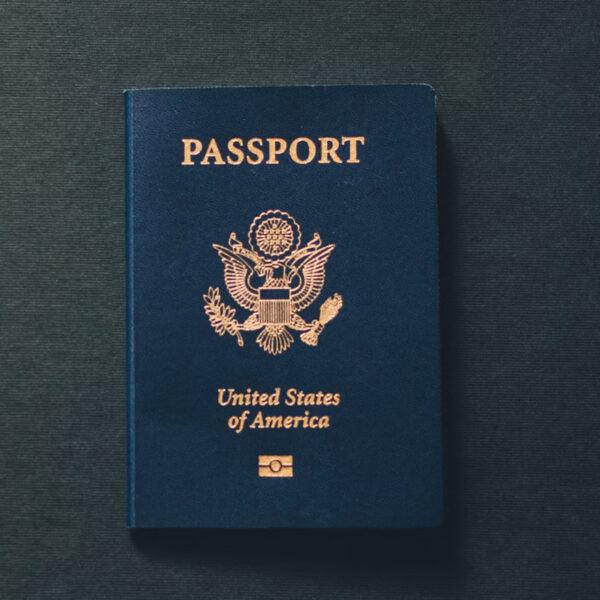
The Most Beneficial Tax Updates For US Expats Arriving In 2024
27 de abril de 2024
Beckham Law: A Guide for US Expats Considering Spain
13 de mayo de 2024Spain Digital Nomad Visa 2024: A Guide for US Remote Workers

The Spain digital nomad visa offers an exciting opportunity for US citizens to enter and reside in Spain for an extended period of time.
If you’re seeking to embrace a new chapter abroad while continuing to work remotely, you can now do so. Spain, known for its sun-kissed beaches, captivating cities, and rich cultural heritage, rolled out its nomad visa earlier this year, and the details are now readily available.
Under this visa, individuals approved as “teletrabajadores de carácter internacional” – international teleworkers – can legally reside and work remotely in Spain.
Spain’s digital nomad visa is part of a broader strategic legislative package
Spain’s digital nomad visa is a component of la ley de startups, or the Startup Act. This law is intended to drive economic growth and promote technological innovation in the country by attracting startups, digital nomads, and investors. Spain, together with Austria and Portugal, is a founding member of the European Startup Nation Alliance, which aims to spur Europe to the forefront of the global startup ecosystem.
The Startup Act was initially proposed several years ago. After undergoing several rounds of negotiations, revisions, and approvals, the law received the green light from both chambers of the Spanish legislative branch (the Congress of Deputies and the Senate) in November 2022. On December 1st, the government publicly announced and published the text of the law. It went into effect a few weeks later.
Requirements and process to become a digital nomad in Spain
There are various citizenship, educational/work experience, financial, and healthcare requirements an applicant must fulfill to successfully obtain a digital nomad visa for Spain.
Application eligibility
The Spanish digital nomad visa is open to nationals from countries outside the EU and the European Economic Area. This means that US citizens and permanent residents can apply for a digital nomad visa in Spain. There are a few conditions, though:
- Applicants may not be residing illegally in Spain at the time of application, nor may they have resided there within the past five years.
- Applicants must pass a criminal background check. (Specifically: an applicant cannot have a criminal record in Spain or anywhere else for two years before applying.)
Additionally, applicants for the digital nomad visa in Spain must be able to:
- Evidence that they will earn at least 200% more than the Spanish minimum wage. The minimum wage will soon change, but currently, the amount a prospective digital nomad will need to earn is at least 28,000 EUR (29,800 USD) a year. (You can prove this figure by including items such as contracts, bank statements, invoices, and pay stubs in your application.);
- Demonstrate work with companies based outside of Spain for at least three months before their application;
- Be able to provide qualifications to work in their field via a university degree or at least three years of work experience.
Visa requirements
- The work contract must be for remote work as an employee or contractor with a company.
- You must also be able to provide proof of a work contract for at least three months prior to your application. This work contract must also specifically state that it allows remote work.
- The full-time remote work contract must be 1) with a company outside of Spain, or 2) the digital nomad must be self-employed with multiple clients.
Pro tip:
If you are self-employed with multiple clients, you are allowed to have clients in Spain, however, they must not comprise more than 20% of your income.
-
In essence, in order to receive Spain’s digital nomad visa, applicants need to be able to produce the following documents:
- Valid employment contract(s)
- Proof of sufficient income to support your stay and dependents (as applicable)
- Health insurance
- Clean criminal record
Spain’s digital nomad visa application process
Let’s now unravel the steps that pave the way to your dream nomadic lifestyle in this Mediterranean paradise:
- Gather the required documents;
- Make an appointment at either;
- your nearest Spain consulate/embassy (if applying from outside of Spain for a digital nomad visa), or
- the Unit of Large Business and Strategic Collectives (if applying from within Spain for a digital nomad residence permit).
- Submit your documents in person;
- Pay the application fee;
- Receive approval within 20 business days. If no notification is received, then your application is considered approved by default;
- Book your travel to Spain;
- Complete all of the necessary administrative procedures necessary to facilitate your move (more on this below);

Spain digital nomad visa tax rate
Typically, Spanish citizens and residents pay taxes according to a progressive regime known as Impuesto sobre la Renta de las Personas Físicas (IRPF). However, in the case of digital nomads, the Spanish government has enhanced an already-attractive tax regime to attract applicants.
The digital nomad tax regime is based on the 2005 Beckham Law, so-called after David Beckham claimed it when he played for Real Madrid. At present, digital nomads in Spain will effectively fall under the Non-Resident Income Tax Regime,” meaning that they are not subject to the IRPF tax bands so long as they make less than 600,000 euros a year. Instead, digital nomads in Spain will pay a simple flat tax of 24%. Additionally, family members of digital nomads in Spain may also apply for this favorable regime by extension.
Pro tip:
While the tax regime that digital nomads are entitled to has many similarities to the Beckham Law, the two are not identical. Considering that the Beckham Law has historically been applied by wealthier expats, it would behoove digital nomads to consult a Spanish tax attorney to ensure they have a comprehensive understanding of the specificities of the digital nomad tax regime, including how it differs from the Beckham Law.
Additional tax benefits for digital nomads in Spain
Holding a “nonresident” tax status also exempts digital nomads from the Spanish wealth tax (Impuesto sobre el Patrimonio).
VAT in Spain
According to Wise, the standard VAT rate in Spain is 21%. This figure applies to most goods and services. The two reduced VAT rates are 10% and 4%. Spain also has some zero-rated goods, the sale of which must still be reported on your VAT return, even though no VAT is charged.
Do American digital nomads in Spain have to pay US taxes?
Yes. America’s tax system requires all citizens and permanent residents to file a federal tax return (provided that they meet the minimum income reporting threshold) regardless of where in the world they live.
Expat tax provisions for Americans filing US taxes in Spain
Moving abroad may complicate your taxes and can feel overwhelming to navigate. Below are some of the additional reporting obligations tax breaks expats should read up on.
Foreign Earned Income Exclusion (FEIE)
The FEIE allows you to exclude a certain amount of foreign-earned income from taxation ($112,000 for tax year 2022, $120,000 for tax year 2023). There are certain tests that you must pass in order to qualify, though.
Foreign Tax Credit (FTC)
The FTC allows you to subtract what you pay in income taxes to a foreign government from what you owe the US government in income taxes.
Foreign Bank Account Report (FBAR)
If you have $10,000 or more in foreign bank accounts at any point in the year, you’ll need to report the contents of those accounts to the Financial Crimes Enforcement Network (FinCEN).
Child Tax Credit (CTC)
If you have qualifying dependents living with you in Spain, you can file the CTC just as you would in the US to get as much as $2,000 in partially-refundable credits.
Foreign Account Tax Compliance Act (FATCA)
If you have over $200,000 in foreign assets by the last day of the tax year, or over $300,000 in foreign assets at any point during the tax year, FATCA requires you to file Form 8938.
If you need legal advice in order to fully understand the requirements you must meet and how does the process work, we strongly recommend contacting us to apply successfully for the Digital Nomad Visa and its Special Tax Regime.



